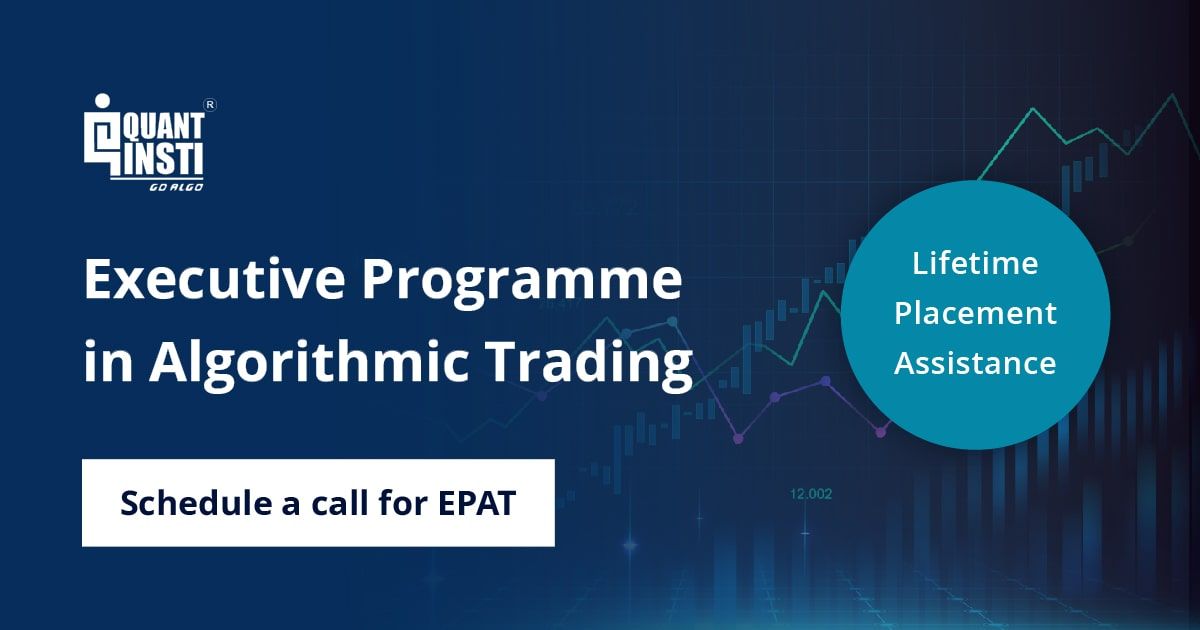Have you ever thought that one could start their journey towards establishing a trading desk, and then going further, would start their own Quant Research Firm? It might seem unbelievable to you, but believe us, it is possible.
Having completed two levels of CFA and coming from a technical background of engineering, Sourabh went on from being a Retail Trader to setting up his own algo trading infrastructure.
We bring you, his incredible story.
Hi Sourabh, tell us about yourself.
Hi, I’m Sourabh Sisodiya, and I am the Co-Founder at Quantify Capital, a quantitative research firm with a strong focus on building quantitative investment & trading models to generate stable and consistent alpha. I’ve previously worked across Equity research, Derivatives trading and Financial analysis.
My educational qualifications comprise an MBA and Bachelor of Engineering (B.E.), Information Technology. I am an NSE Certified Market Professional (NCCMP) from the National Stock Exchange of India Limited. I have also completed levels 1 and 2 of the CFA program.
When did you develop an interest in algorithmic trading?
Earlier, I was trading using simple technical analysis & candlestick patterns. But there was a lot of subjectivity involved and I was not sure about the edge in the system. I realised the need to follow a backtested system for long term success in the markets and that’s what got me interested in algorithmic trading.
Being from an engineering background, I was always interested in data and maths and knew that algo trading is the way forward for me.
What made you decide that EPAT would be the ideal choice to learn more about algorithmic trading?
EPAT is the only comprehensive programme regarding algorithmic trading with alumni from across the world. The course was started by ex-traders who worked at big firms like Optiver.
After speaking to a few alumni, I was convinced that EPAT would help me grow in algorithmic and quantitative trading.
What skills were you looking to upgrade? Tell us about your experience.
I was looking to learn about backtesting and scaling a trading strategy and how to properly manage the risk of derivatives. That’s when I came across EPAT. I had a great time and I learnt a lot about building a scalable trading system.
EPAT’s philosophy has been:
Idea --> Rules --> Backtest --> Discard or Deploy --> Optimize --> Scale
How are you applying the learning and knowledge to your professional life?
After completing EPAT and working for some time, I started Quantify Capital, where we basically trade 3 strategies:
- Mean reversion strategies
- Trend following strategies and
- Option writing to capture theta decay
All these strategies are uncorrelated which keeps the system drawdown at a minimum. All that learning during my time at EPAT has been the motivating factor for me.
Any message you would like to share with aspiring quant and algo traders?
As William J. O'Neil, the author of ‘How to Make Money in Stocks’ says,
“The whole secret to winning big in the stock market is not to be right all the time, but to lose the least amount possible when you’re wrong.”
A profitable trading system just needs big wins & small losses.
Always remember, the winning percentage is not the most important factor.
Rightly put, and well said, Sourabh. We wish you lots of wishes for your future endeavours.
Start your quest to upgrade your knowledge of Algorithmic Trading through the Executive Programme in Algorithmic Trading (EPAT®), which ensures that you are equipped with the requisite knowledge, and enhances your Algorithmic Trading skills. EPAT is a comprehensive course covering topics ranging from Statistics & Econometrics to Financial Computing & Technology including Machine Learning and more.
Disclaimer: In order to assist individuals who are considering pursuing a career in algorithmic and quantitative trading, this case study has been collated based on the personal experiences of a student or alumni from QuantInsti’s EPAT® programme. Case studies are for illustrative purposes only and are not meant to be used for investment purposes. The results achieved post completion of the EPAT programme may not be uniform for all individuals.

